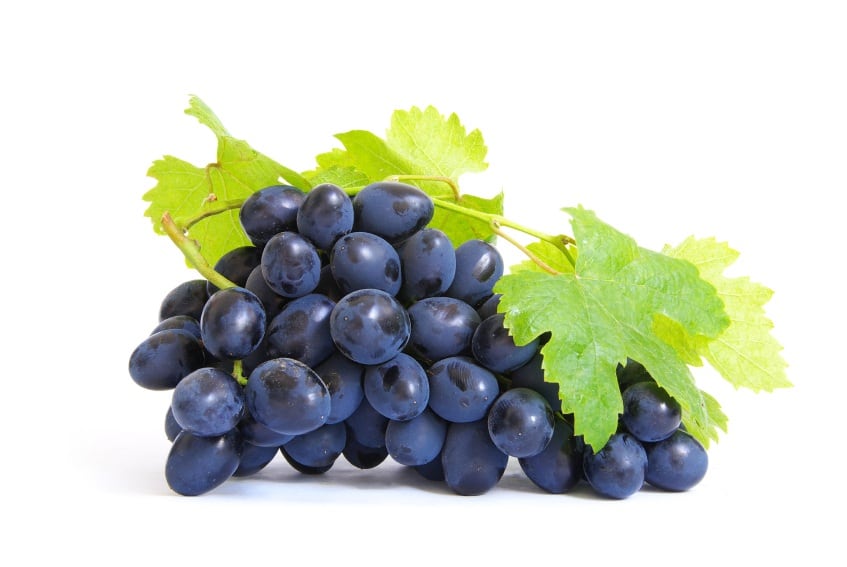Findings published in PLoS One indicated that the solubility of trans-resveratrol could be enhanced using ribose and that absorption of resveratrol is possible via the mucous membrane in the mouth.
“The oral transmucosal delivery method appears to elevate peak plasma level of trans-resveratrol above that previously reported following GI absorption (e.g., powder, caplets) in humans,” wrote the researchers.
“Given the limited number of excipients tested, limited dosage forms, and the small number of human participants this should be considered a proof of concept study which provides the first evidence to support further pursuit towards development of a resveratrol lozenge optimized for human oral transmucosal absorption.”
The study was funded by Wilmore Labs, LLC from San Antonio, TX, a start-up company which aims to develop novel formulations for nutraceutical delivery, and the company’s president and CTO, Otis Blanchard, is first author of the paper. The study was performed in collaboration with researchers from the University of Texas Health Science Center at San Antonio, High Point University in North Carolina.
The resveratrol-ribose lozenge is the subject of a pending patent application (2011/0130,469) by Blanchard, who told NutraIngredients-USA that he has been working on the resveratrol lozenge for four years, and the company is actively engaged in pursing commercialization of the product. The bottleneck for further development is investment, he said, and the company is exploring various options to move forward, including crowd-funding.
Resveratrol

Resveratrol, a powerful polyphenol and anti-fungal chemical, is often touted as the bioactive compound in grapes and red wine, and has particularly been associated with the so-called 'French Paradox'. The phrase, coined in 1992 by Dr Serge Renaud from Bordeaux University, describes the low incidence of heart disease and obesity among the French, despite their relatively high-fat diet and levels of wine consumption.
Interest in the compound exploded in 2003 when research from David Sinclair and his team from Harvard reported that resveratrol was able to increase the lifespan of yeast cells. The research, published in Nature, was greeted with international media fanfare and ignited flames of hope for an anti-ageing pill.
According to Sinclair’s findings, resveratrol could activate a gene called sirtuin1 (Sirt1 – the yeast equivalent was Sir2), which is also activated during calorie restriction in various species, including monkeys.
Other studies with only resveratrol have reported anti-cancer effects, anti-inflammatory effects, cardiovascular benefits, anti-diabetes potential, energy endurance enhancement, and protection against Alzheimer’s.
“However, there remains concern regarding low bioavailability and wide inter-individual differences in absorption and metabolism in humans, which suggests a great need to develop novel methods for resveratrol delivery,” explained Blanchard and his co-authors.
Study details
In order to test the potential of delivering trans-resveratrol via a lozenge, the researchers tested the solubility of the ingredient in the presence of dextrose, fructose, ribose, sucrose, and xylitol. Results showed that the resveratrol was, “significantly more soluble in the ribose solution than in the other four solutions”, they said, and ribose was subsequently used for the proof of concept test with two healthy human participants.
The volunteers consumed one lozenge containing 146 mg of trans-resveratrol per 2000 mg of lozenge mass. The raw resveratrol was purchased from Biotivia but manufactured into a lozenge by Wilmore Labs.
Data showed that the peak plasma concentrations (Cmax) for resveratrol alone (and not its metabolites) were achieved after only 15 minutes, which is “considerably quicker than the 60–120 minutes reported using traditional free resveratrol tablets,” they said.
“As human clinical trials investigate the benefits of trans-resveratrol treatment on human health, it will become especially important to develop effective delivery methods which are cost effective, produce minimal side effects, and limit inter-individual bioavailability.
“Future research must be conducted to determine if the high plasma levels attained from the optimized resveratrol lozenge hold true across multiple individuals and whether the metabolite profile differs considerably from that obtained from an oral supplement,” they concluded.
Source: PLoS One
Published online, doi: 10.1371/journal.pone.0090131
“Development of a Lozenge for Oral Transmucosal Delivery of Trans-Resveratrol in Humans: Proof of Concept”
Authors: O.L. Blanchard, G. Friesenhahn, M.A. Javors, J.M. Smoliga
